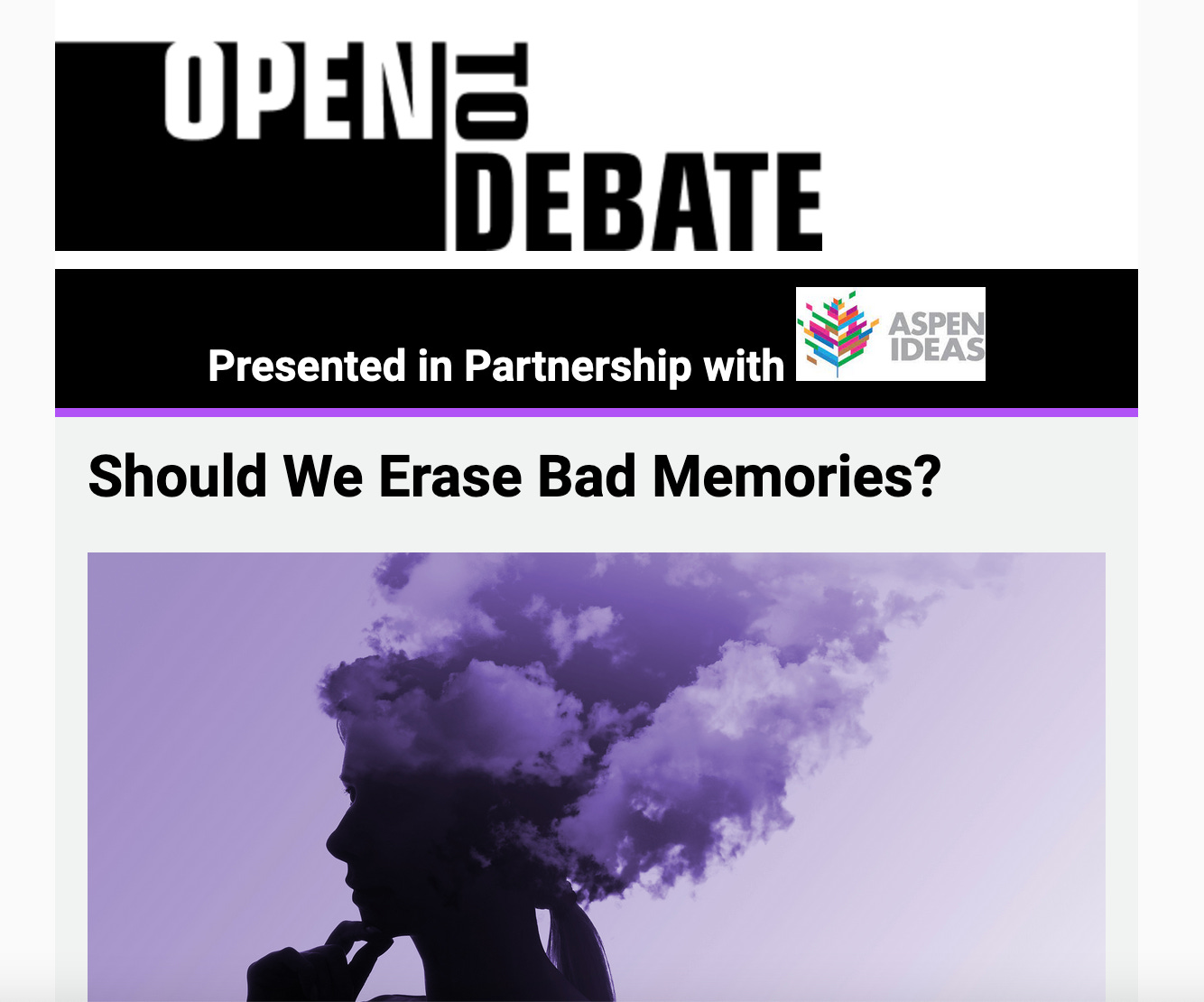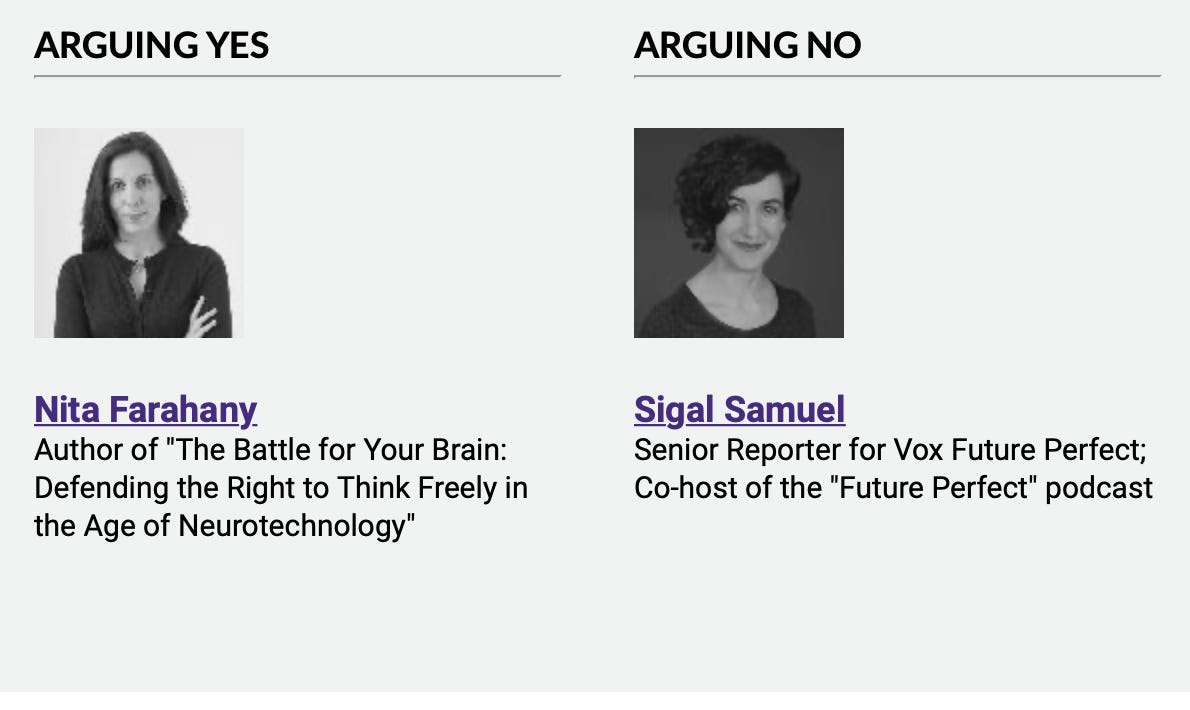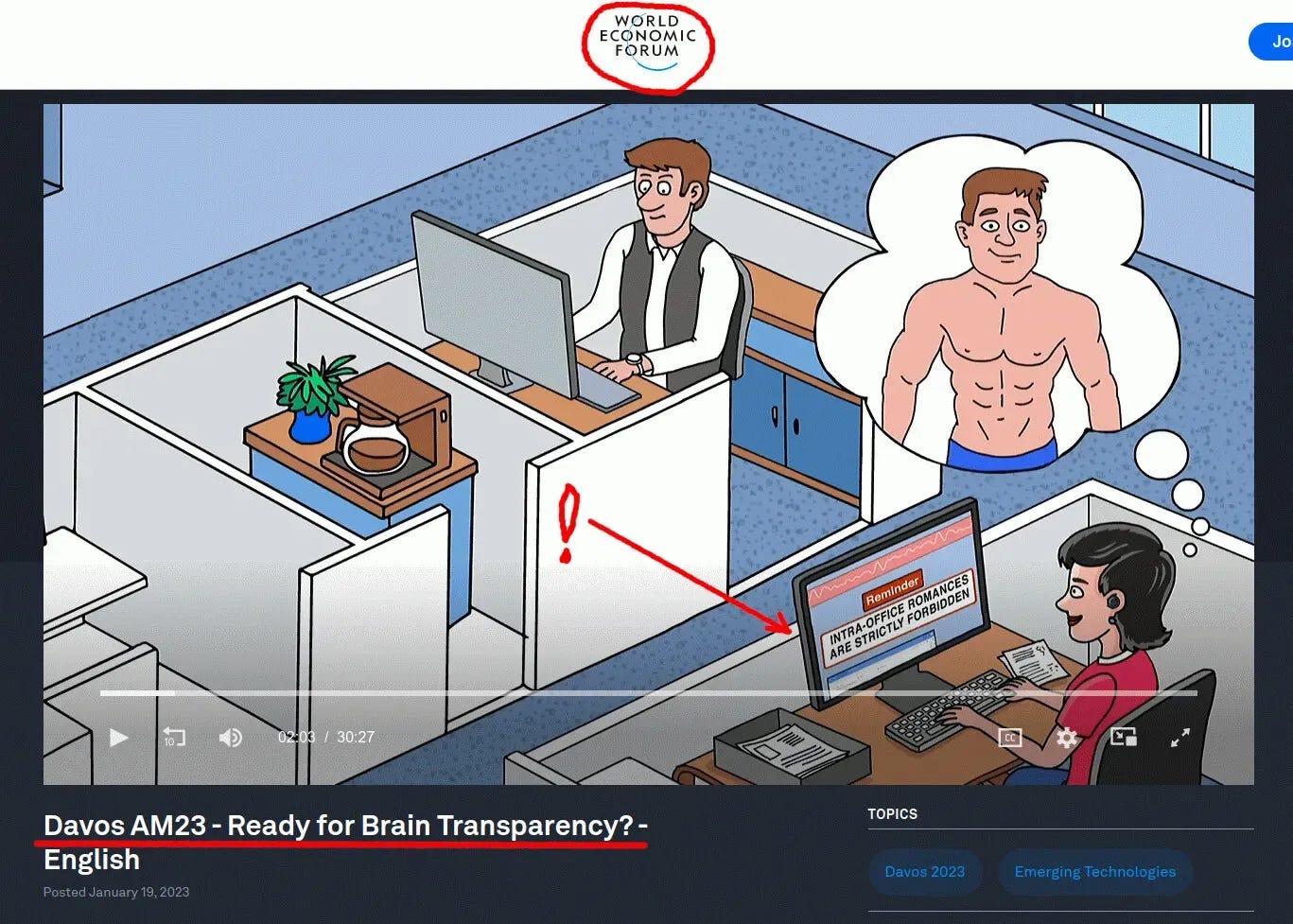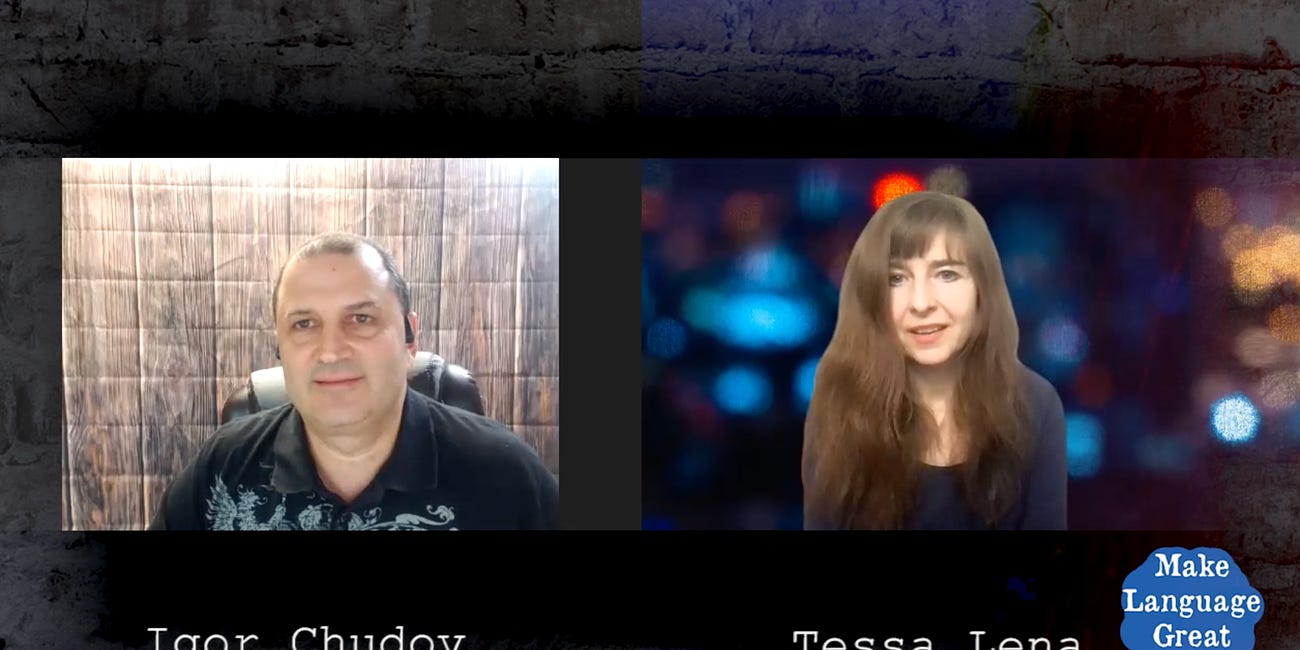No sooner had yours truly sent an article about the enchanted human engineers and their ambition to manufacture brand new orphans people in the lab and to erase “undesirable” memories in the people who are already here, I received a newsletter from this little NGO, “Open to Debate.”
Open to Debate
I was kidding about them being little. Open to Debate (formerly called Intelligence Squared U.S.) was founded by Robert Rosenkranz in 2006. To appreciate the scale, here is a paragraph from his Wikipedia bio:
Robert Rosenkranz is an American philanthropist and the chairman of Delphi Capital Management, an investment concern with over $35 billion in assets under management, and the founder of a group of investment and private equity partnerships. From 1987 until 2018 he was the chief executive officer (CEO) of Delphi Financial Group, an insurance company with more than $20 billion in assets. Delphi grew from one of his acquisitions and increased its value 100-fold under his leadership
But back to deleting memories and dirty predictive programming.
Deleting memories
Nita is the lady who was on the notorious WEF panel titled, “Ready for Brain Transparency?” If you want a refresher on the panel, it was the panel where they talked about prohibiting office romance by using brain sensors and AI.
Igor Chudov should be credited with unearthing this gem (and for this image), and after he wrote about it, he and I discussed it in our interview (below).
The debate
Here is what the Open to Debate newsletter says:
“None of us are immune from living through events and experiences we’d like to forget. Many shrug off bad memories as an integral part of being human, but others — especially those who have suffered from traumatic events or mental illness— long for a way to live an emotionally healthier and happier life. One procedure that’s been garnering discussion around its usage is decoded neurofeedback (DecNef).
What is it? Decoded neurofeedback is a technique some scientists think could help disengage — or erase — neural pathways leading to our bad memories by measuring activity in brain regions, decoding the activity, and giving participants control over some brain processes. From there, participants learn to move their neural activity closer to the “ideal” way of thinking over time.
What are the arguments? Those in favor say erasing bad memories would provide people with a path toward emotional healing and relief from the painful parts of their lives that give rise to anxiety, depression, and PTSD. People on the other side point out the ethical and legal issues that may come up from altering this biological process and argue that having bad experiences makes us human and helps shape the person we become. In many cases, trauma can lead to resilience, they say.
Here's the question: Is erasing unwanted, painful memories worth undergoing a procedure? Is erasing unwanted, painful memories worth undergoing a procedure? If you do, would you want to risk losing a part of your life experience, a part of yourself, and what makes you you?
This week, we debate: Should We Erase Bad Memories? Arguing YES is Nita Farahany, the author of "The Battle for Your Brain: Defending the Right to Think Freely in the Age of Neurotechnology," which discusses the ethics between neuroscience and technology. Arguing NO is a senior reporter at Vox Future Perfect and co-host of the Future Perfect podcast, Sigal Samuel.
There are many things I could say in the response to their question but I will say just one word: NO.
Seriously, no.
Note to readers: If you are in the position to do so, I encourage you to become a paid subscriber or donate. I love you in any case, but it helps A LOT. Thank you from my heart for your support!







These people have such a childish view of the world -- that the ideal life is one of unbridled hedonism and instant gratification. That true happiness is a consequence of having every whim and desire fully sated.
A wise aphorism I can’t forget is that the greatest affliction of all is never to have been afflicted. Wisdom is forged through tribulation.
Many are the stories of those who have triumphed in spite of horrible circumstances and suffering and we all find those stories uplifting. There’s a reason for that.
NO. N.O. means NO. exactly what Beau said. They want us to forget what they did and are doing. They want us to forget the fires, forget the tortures, forget everything, forget who we are, forget who they are.